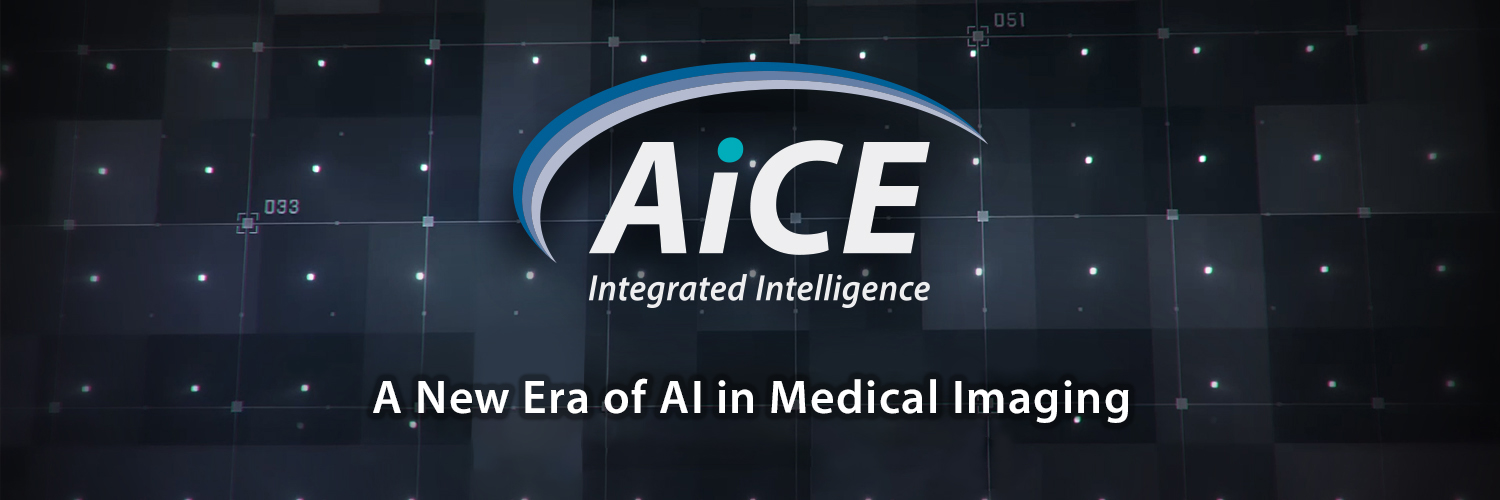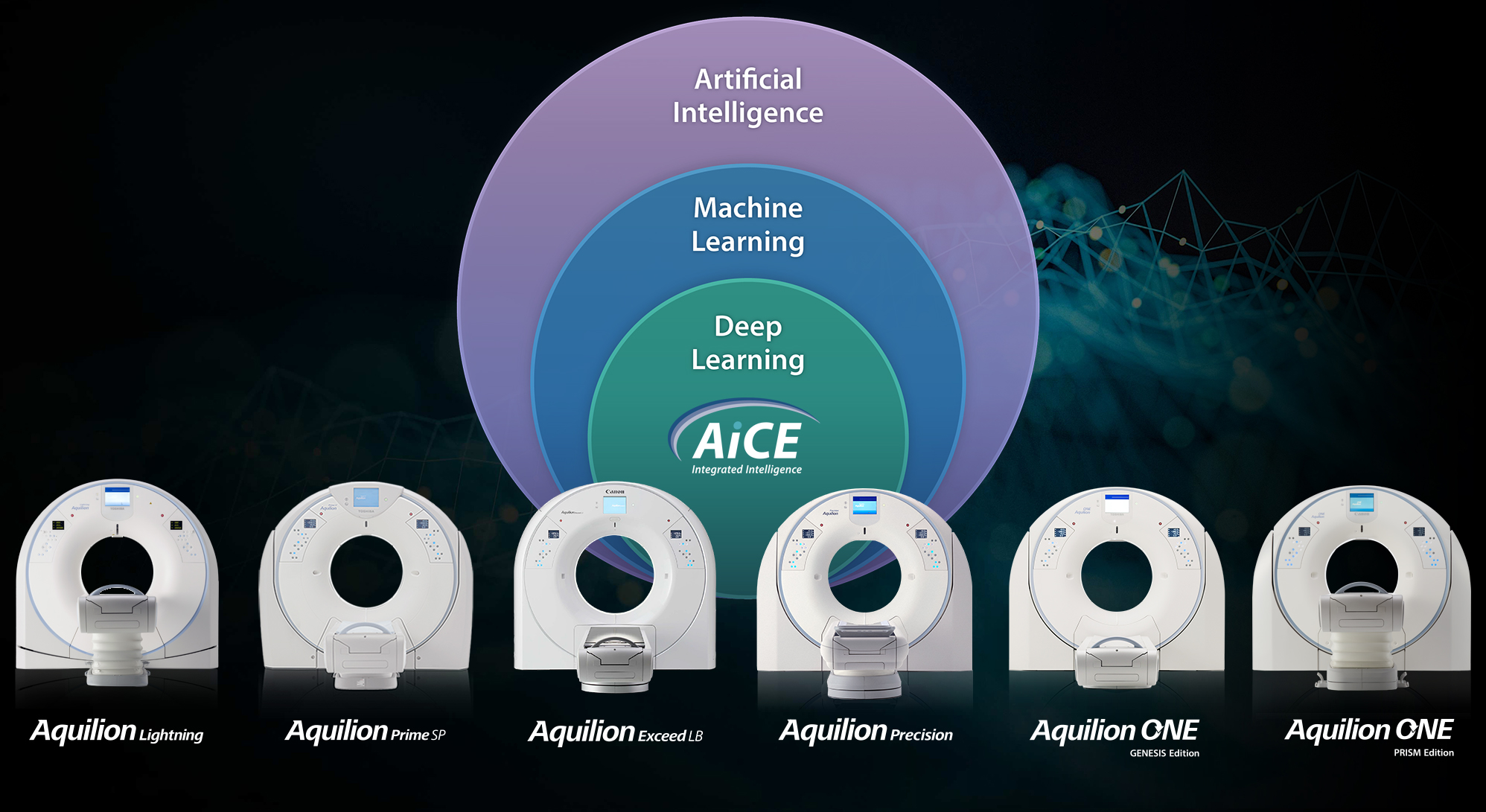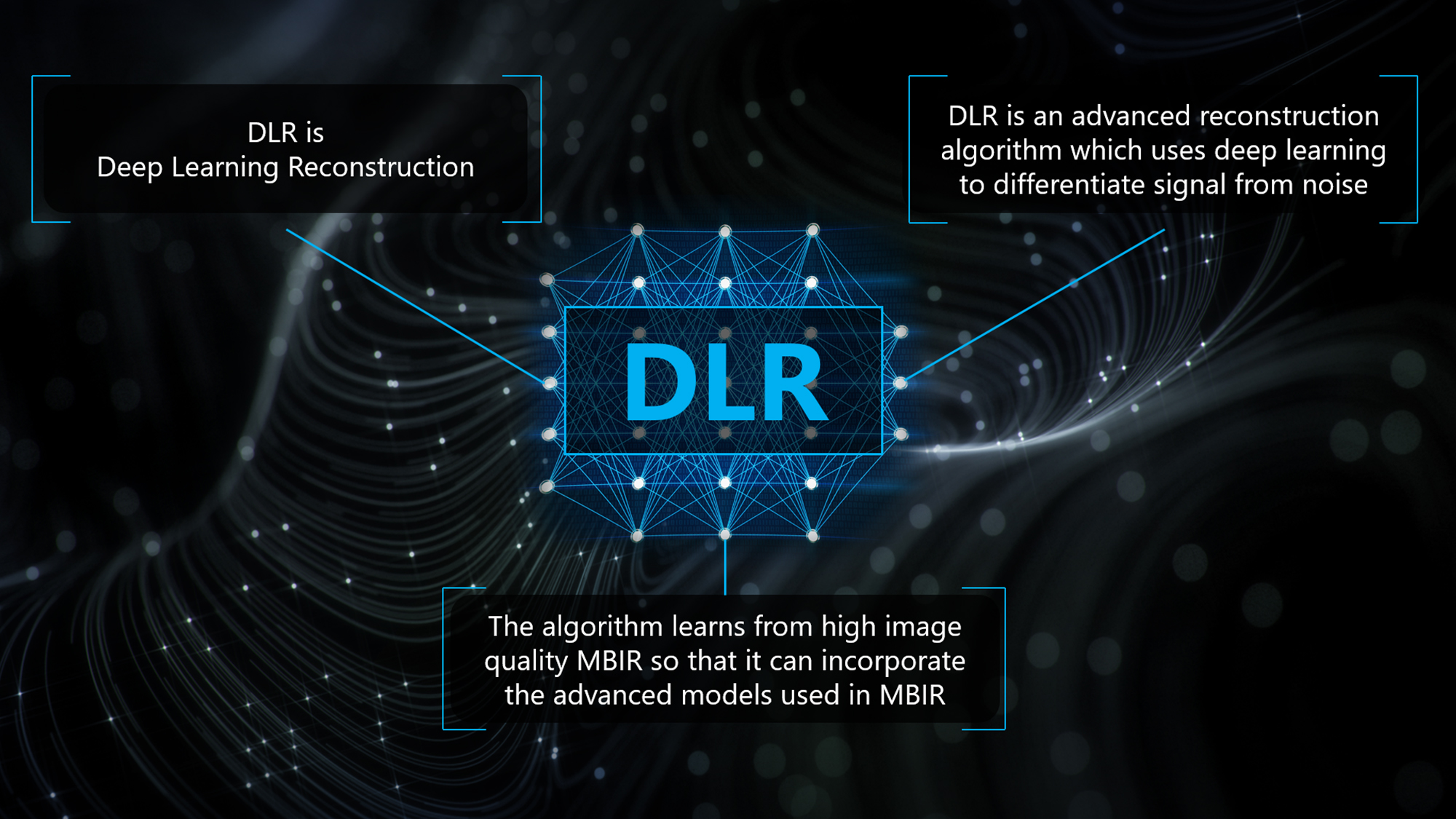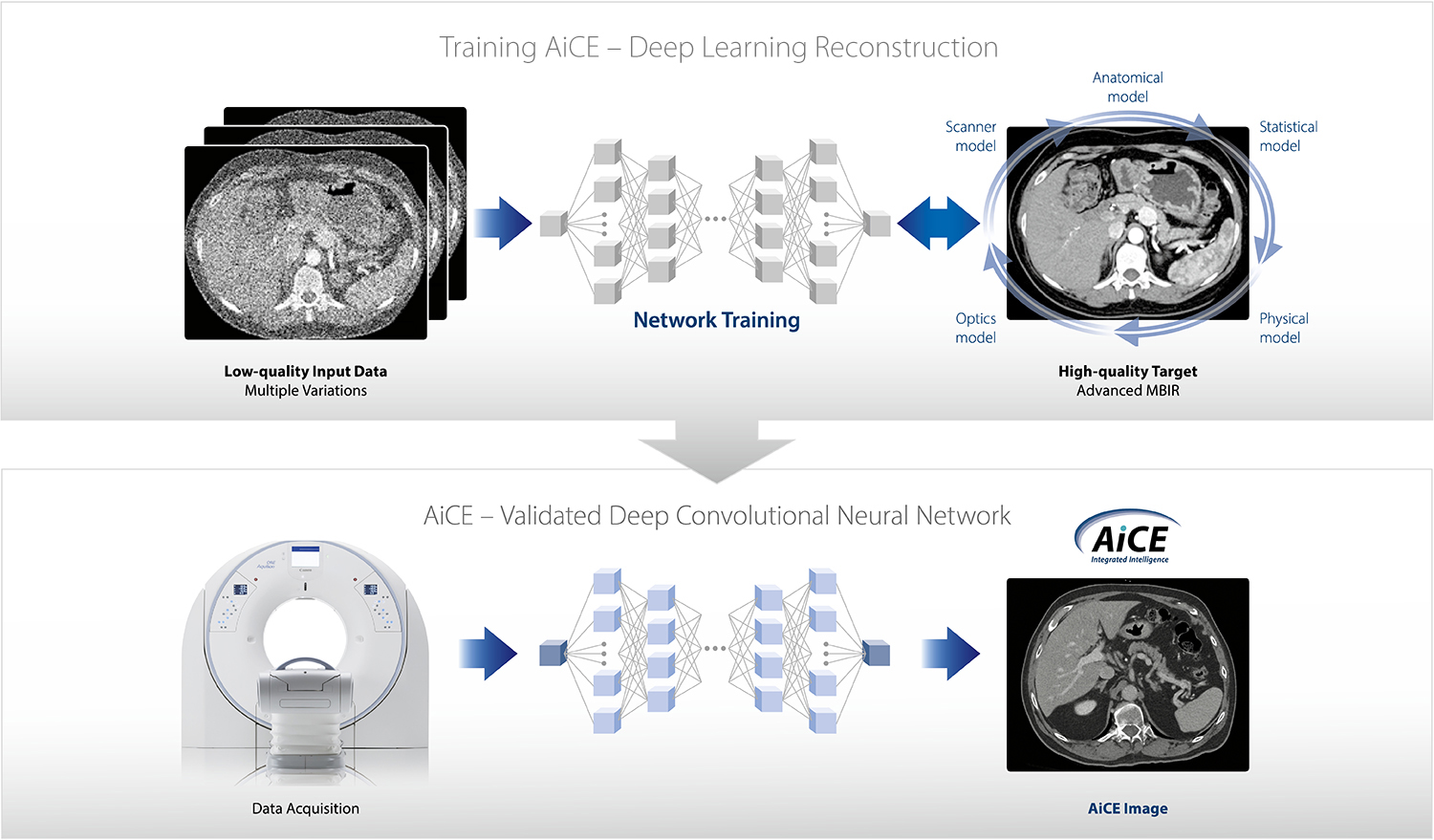
Deep Learning
The deep learning methods of the Deep Convolutional Neural Network (DCNN) are able to process enormous amounts of data through a network of decision making nodes, or neurons, and are well regarded for their excellent performance in image recognition-based applications.

AiCE Deep Learning Reconstruction
Method and Results
Redefining the balance of IQ, speed and dose.
Results:
- Fast reconstruction speed:
- 3-5x faster than MBIR
- High image quality:
- Improved spatial resolution compared to AIDR 3D
- New Low Contrast Detectability
- Image noise appearance more similar to filtered back projection†

The DCNN essentially programs itself as it learns, becoming more accurate and more efficient with every new training task. The training is executed by engineers and reconstruction development scientists with expertise in AI and DCNN.

The software then undergoes an important validation, where it is provided with only low-quality data to reconstruct based on what it has learned. The high-quality target images must not be known to the DCNN and are used by the AI engineer to evaluate accuracy and performance based on various image quality metrics. Once validated, the neural network is wrapped at peak performance where it contains all the knowledge required to perform an advanced, quality reconstruction from virtually any variation of patient size and exposure dose.


